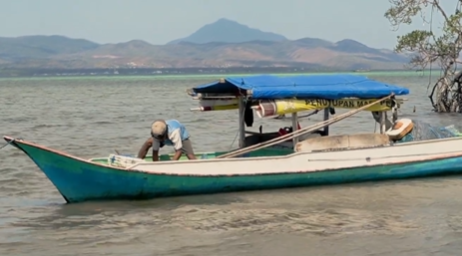Empowering Youth-led EbA Practices for Coastal Resilience: Building on Muro Conservation Traditions in Climate-prone Lembata Island in Indonesia
Project Information
Plan Indonesia conducted a Climate Risk Assessment on Lembata Island to evaluate climate impacts on ecosystems across urban, upland, and coastal areas. Lembata, the largest island in the Solor Archipelago, spans 1,266.39 square kilometers and is home to 135,930 people. Renowned for its cultural heritage, including handwoven textiles and whale hunting rituals, over 40% of Lembata is coastal, making it vulnerable to hazards like sea-level rise, tropical cyclones, and marine heatwaves, which threaten vital ecosystems such as coral reefs, mangroves, and fisheries.
Coastal communities rely heavily on traditional fishing, facing reduced fish production and ecosystem degradation. To address this, they practice Muro, a conservation initiative ensuring food security during tough times. Local NGO YBS Baru has successfully advocated for Muro’s recognition, yet its relevance is diminishing among youth due to perceived obsolescence.
The project aims to reduce climate vulnerabilities by involving women and youth in Ecosystem-based Adaptation (EbA) measures that leverage biodiversity for resilience. Grounded in Muro, the initiative focuses on restoring and sustainably managing ecosystems while preventing overexploitation. Youth are empowered as environmental stewards through training, fostering ownership and sustainable practices. This approach supports the Sustainable Development Goals, particularly SDG 13 (climate action), SDG 14 (life below water), and SDG 17 (partnerships). By enhancing Muro, the project promotes environmental restoration and community resilience against climate change.
Key Metrics
Implemented By:
Yayasan Plan International Indonesia with Yayasan Bina Sejahtera Baru

